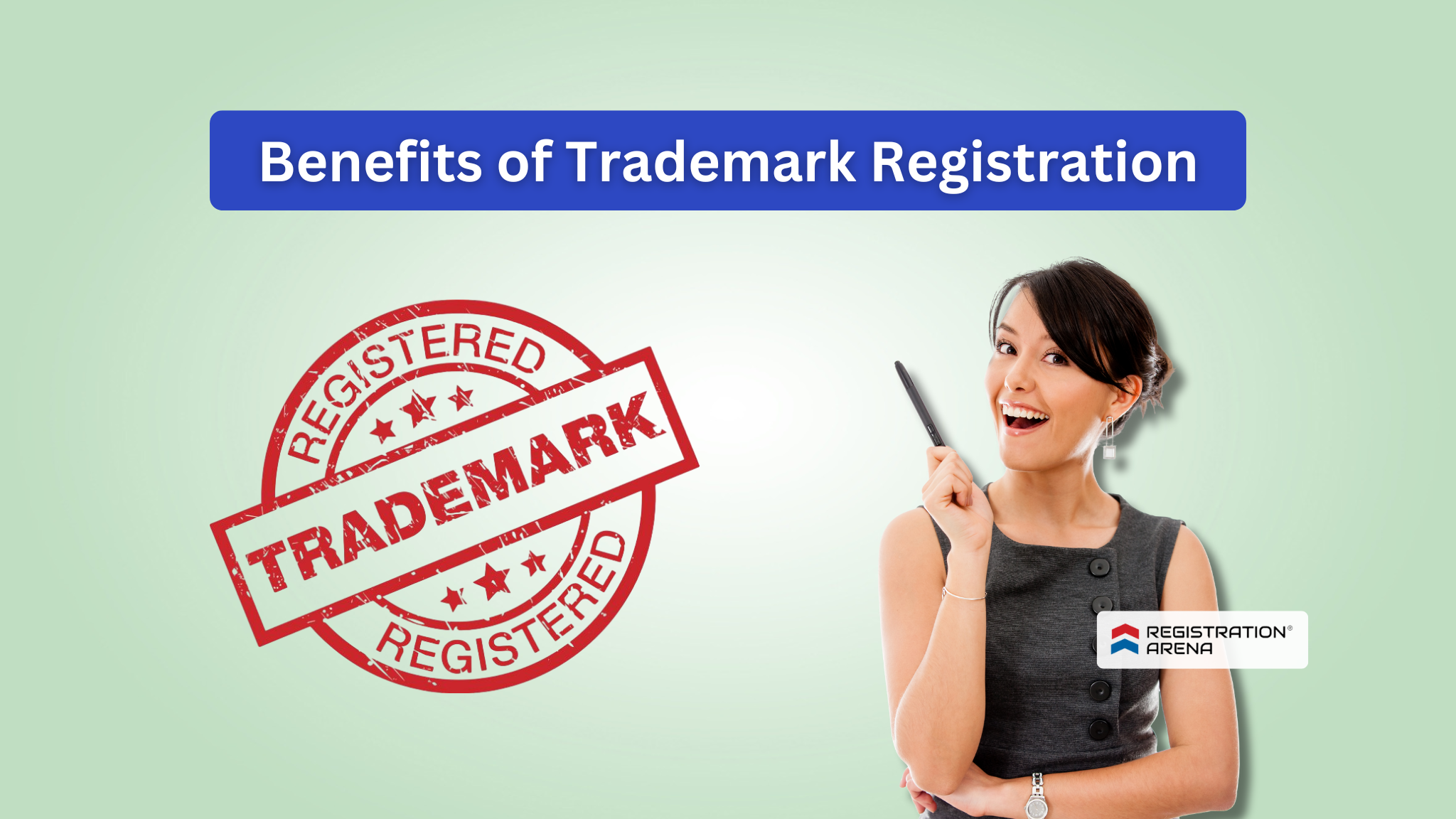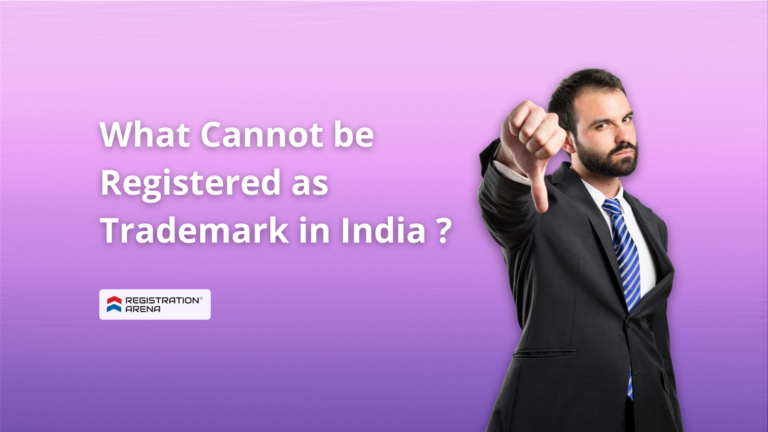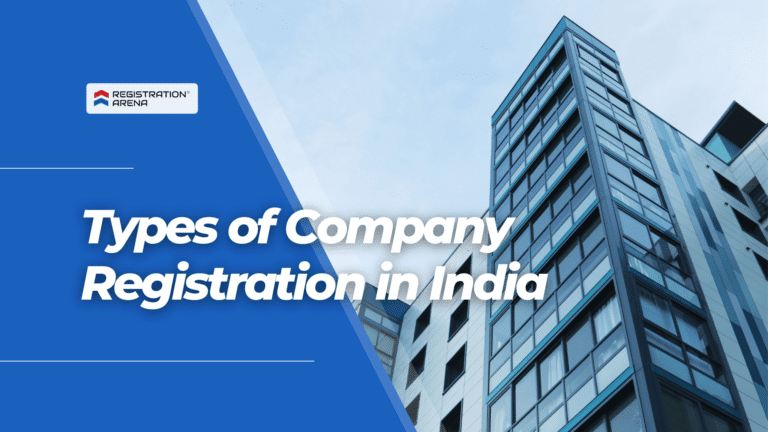A Trademark is a recognizable word, sign, phrase, or symbol that denotes a specific product and legally differentiates that product from the rest of the similar products in the market. It helps the customer exclusively identify a product as belonging to a particular company and recognize the company’s ownership of the brand.
Trademarks are the legal rights granted to companies or individuals, allowing them to use their brand names and prevent others from copying their goods. They allow them to prevent other businesses from using similar names or logos. In other words, they give the owner exclusive rights over their name, mark, logo, etc. They represent the brand identity of the individual/company and protect its goodwill. If someone uses your trademark without permission, they risk facing legal action or even having their products seized by the authorities.
Trademark registration is a process to establish one’s property rights for a particular mark. The process through which a trademark is recorded in the Register of Trademarks is referred to as registration. The owner of the trademark can apply to the trademark registry (jurisdiction is decided based on the principal office of the business. The registration procedure in India is based on the ‘first to file’ system i.e. Trademark rights are granted to the first party to apply for registration, regardless of prior use in some cases.
It is therefore important that the rights holder applies for the registration of its mark as soon as possible. The registration of a trademark confers on the registered proprietor of the trademark the exclusive right to use the trademark in relation to the goods or services with respect to which the trademark is registered. The ® symbol signifies a registered trademark.
In this blog, let us discuss the characteristics of a good trademark, the benefits of trademark registration, process of registering a trademark in India.
Characteristics of a Good Trademark
A Trademark to be good and acceptable for registration should have the following attributes:
- It should not be confusing or leading to doubts regarding the nature of the product or service.
- It should be simple, easy to pronounce, spell and read.
- It should be easier for the general public to translate if it’s in another language.
- It should not contain any word, image, or element that is offensive to any caste, gender, age, or religion.
- It should not be similar to, or deceptively identical to, an already registered trademark.
- The mark must be easily adaptable.
Benefits of Trademark Registration
The following are some benefits of trademark Registration Process in India:

1. Enhanced Brand Recognition
Trademarks help distinguish one’s products or services from competitors, making it easier for consumers to recognize and remember a brand. A registered trademark builds consumer trust and credibility. When customers see a registered trademark, they recognize that the brand is legitimate and reliable. This recognition fosters loyalty, encouraging customers to choose your products or services over competitors.
2. Legal Protection
Registering a trademark provides legal protection, giving one exclusive rights to use the mark and preventing others from using a similar one that could cause confusion. Trademark registration provides exclusive legal rights to one’s brand name, logo, or slogan, making it illegal for others to use them without their permission. This protection allows us to take legal action against unauthorized use, ensuring that the brand remains uniquely theirs.
3. Market Positioning
Trademarks can help establish a brand’s identity and position in the market, influencing customer perceptions and choices.
4. Legal Recourse for Enforcement
If someone infringes on one’s registered trademark, one has the right to take legal action to protect one’s brand. This includes filing lawsuits and seeking damages. A registered trademark strengthens one’s position in any legal dispute, giving the tools needed to enforce your rights effectively.
5. Exclusive Rights to Your Brand
Trademark registration grants exclusive rights to use one’s brand in connection with the goods and services offered. This exclusivity prevents competitors from using similar branding, reducing confusion among consumers and strengthening the market position.
6. Increased Business Value
A trademark is an intangible asset that adds value to one’s business. When seeking investments, mergers, or acquisitions, having a registered trademark can significantly enhance your company’s worth. Investors are more likely to invest in a business with a strong, legally protected brand.
7. Use of ® Symbol
The ® symbol signifies to consumers and competitors that the trademark is registered, deterring unauthorized use. It enhances the perceived value of the brand, as consumers often trust registered marks more than unregistered ones.
8. Facilitates Licensing and Franchising Opportunities
With a registered trademark, one can more easily license the brand or expand through franchising. It ensures that one’s brand is legally recognized, making it simpler to enter into agreements with potential licensees or franchisees, and providing a solid framework for expansion.
9. Ownership Rights
Trademark registration provides clear evidence of ownership and priority. In cases of disputes, the registered owner typically has a stronger legal position. It allows the owner to enforce their rights against others who may attempt to use similar marks, reinforcing their brand identity.
10. Public Notice
Registering one’s trademarks publicly declares your ownership, confirming that they are valid and enforceable. This means that anyone searching the Trademarks Registry or the internet will find your registration and recognize your rights to use those trademarks. This visibility can deter potential infringers from using your trademarks or similar marks. For more information, you can visit the official website of Intellectual Property India.
11. Financial Value
Registered trademarks can be included in financial statements as intangible assets, reflecting their value on the balance sheet. The ability to demonstrate a registered trademark’s value can enhance a company’s credibility when seeking financing or attracting investors.
12. Product Differentiation
A trademark offers a “brand name” to the product and services associated with the same. It gives an identity to the company which is special and cannot be used by any other company. The logo also conveys the company’s vision and the quality of the products it supplies. The product differentiation feature is very important in a market where competition prevails. So it serves as a tool for product differentiation.
13. Marketing Advantages
A registered trademark can enhance marketing efforts, making it easier to establish brand loyalty when consumers recognize and trust the mark.. It can also provide a competitive edge, allowing businesses to distinguish their products or services in a crowded marketplace.
14. Duration of Protection
Trademark registration can last indefinitely, provided that the owner continues to use the mark and renews the registration as required. This long-term protection allows businesses to build and maintain brand equity over time.
15. Global Coverage
The trademark registered in India, can be further registered in different nations globally. For the applicants intending to register outside India, an application along with an established goodwill in India can be presented.
16. Attracts Human Resource
Young talents are attracted by companies that have a name in the market. They want to work in a well-known company. The name of the company is established by the trademark. So people get attracted to work for these companies. Thus it attracts good human resources. Human resources is one of the most important raw materials of the company. Not only that the well-known trademark attract young and better human resources, but also it encourages the present reserve of human resources to work for the development of the company.
Initiatives Taken by the Indian Government for Ease of Trademark Registration
During the year, the Intellectual Property Office has been radically transformed through numerous initiatives that have contributed tremendously to easing of access to the Intellectual property (IP) system, efficiency in processing of IP applications, uniformity and consistency in the examination of applications, transparency and dissemination of IP information, bilateral cooperation at the international level, and raising the awareness level of the public.

Transparency and dissemination of information
The official website provides vast information relating to patents, trademarks, designs, and geographical indications. The real-time status of IP applications with entire file wrappers and e-registers is now open to the public, providing a strong tool to the public that can now be an integral part of the IP system. An innovative tool, showing the stock and flow of patents and trademarks applications at every stage of its processing, has ushered in transparency.
Modernization of Administration
The IP system embarked on its e-journey by introducing the complete electronic processing of Patents and trademark applications through specialized modules. To cater to the immense flow of the papers filed, a single central server at IPO Delhi is in place. Since India has a unique intellectual property office wherein there are 4 patent offices and 5 trademark offices, there is a need for strong intra-office connectivity. The system is unique in itself since there is automatic generation of application numbers as well as automatic allotment of the request for examination which is sequential and thus transparent and user-friendly.
- Online e-filing facilities: Comprehensive online e-filing facilities for patent and trademark applications were introduced in 2013-15 which provided the stakeholders 2 major advantages. First, an applicant can file an application virtually 24/7, and second, applications can be filed from the comfort of their workplace/ homes.
- Comprehensive payment gateway: The IPO allowed the e-filers the facility of using debit cards, credit cards, and Internet banking. This year, e-filers were given the facility of using debit cards, credit cards, and internet banking of over 70 banks for making payment of fees for all forms.
- 10% rebate on online filing: To encourage online filing of applications, a 10% rebate on online filing of applications and documents has been introduced; online filing has jumped from under 30% to over 80% in just a year
Fee Concession for MSME
MSMEs account for 45% of total industrial production and the total contribution of MSMEs to India’s GDP is 38%. To encourage them to innovate and seek protection for their inventions, a 50 % fee reduction has been provided for MSMEs.
Human Resources
An additional 1033+ plan posts have been created, including 666+ posts for Patents & Designs and 367+ posts for Trademarks and GI at various levels. Already, recruitment is underway. Patent and Trademark examiners are also being taken on contract to deal with the backlog.
Madrid Protocol
The operationalization of the Madrid protocol for international protection of trademarks provides the user the facility of protecting his trademark in 90 countries by filing a single application in one language with one set of fees filed at the Trademarks Registry. Till June 2015, 13,666 international applications designating India have been received at the Trademarks Registry, India.
International Search Authority and International Preliminary Examining Authority
India has been recognized by the World Intellectual Property Organization as the 17th International Search Authority and International Preliminary Examining Authority in the world. It began its operations in 2014 and to date, 758 international applications have been received and 575 reports issued. India prides itself on providing quality reports at the lowest cost among international players like USPTO, EPO, JPO, etc. At present, it has been recognized as ISA/ IPEA for nationals of the Republic of Iran.
IPR Awareness Programmes
Awareness creation is one of the major planks of the modernization scheme of IP system, as this will educate the stakeholders about the benefits of registration of their rights and also educate the general public, particularly the business community, on the perils of infringement of IPRs held by others/ dealing in pirated and counterfeit products. These programs are also expected to sensitize the enforcement agencies such as state police forces, and the judiciary.
Conclusion
Trademark registration is a vital process that grants legal protection to a brand’s identity, including names, logos, and slogans. By registering a trademark, businesses secure exclusive rights to use their marks in commerce, preventing others from using similar identifiers that could cause confusion. This not only enhances brand recognition and loyalty but also provides legal recourse in case of infringement. Overall trademark registration is essential for safeguarding a company’s intellectual property and maintaining its competitive edge in the market.
Are you looking to avail benefits of trademark registration? At Registration Arena, our expert team is here to guide you through the process. Contact us today to start the Trademark Registration process in India smoothly and efficiently.








